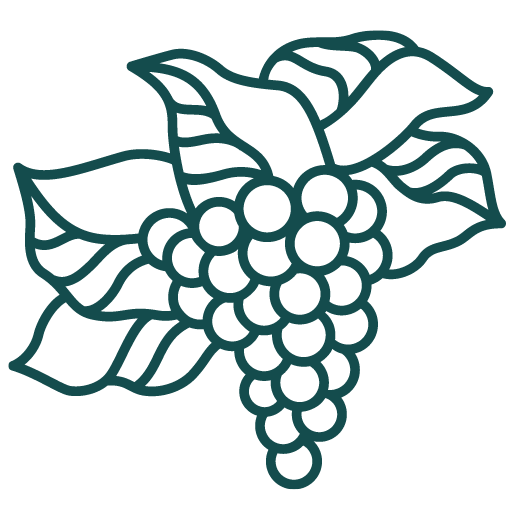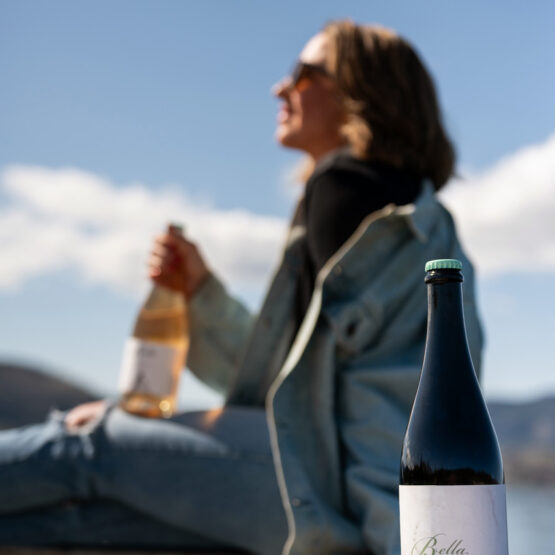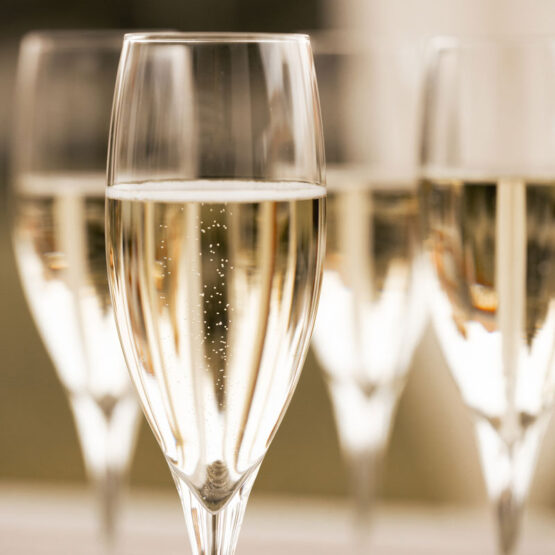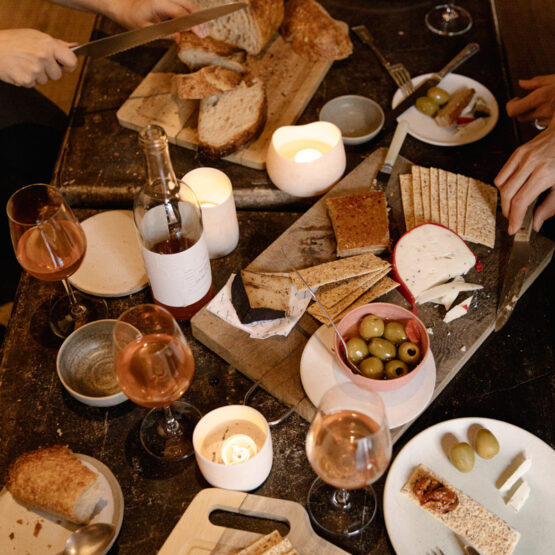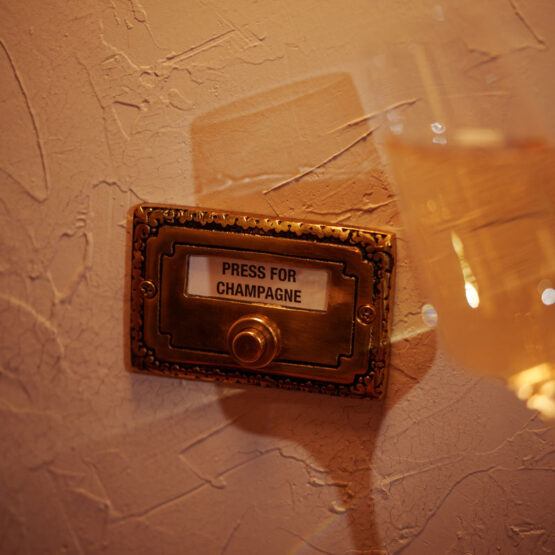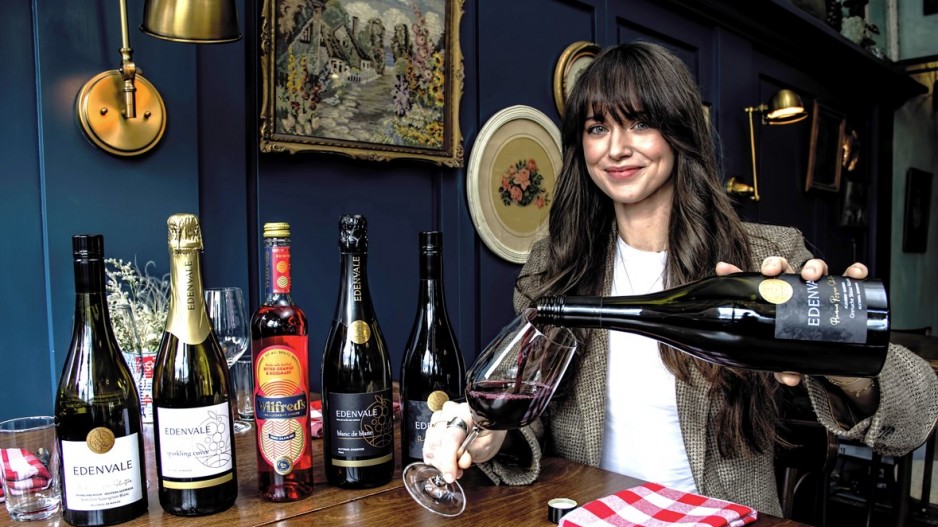
Sansorium co-founder Fiona Hepher pours some of the Edenvale non-alcoholic wine that her wholesale distribution company sells to Michelin-star Vancouver restaurants such as St. Lawrence, Kissa Tanto and Osteria Savio Volpe. Chung Chow
Those who want to cut back on alcohol but enjoy wine are increasingly finding a range of high-end products to quench their thirst.
Wine-producers are investing in higher-quality vineyard-grown vinifera grapes and using expensive spinning-cone technology to remove alcohol.
This means that instead of picking up an $8 bottle of non-alcoholic wine at the grocery store, there are now shops that specialize in selling wines in the $20-to-$30 range.
Hawksworth Restaurant Group (HRG) wine director Chris Rielly told BIV that Hawskworth and Nightingale restaurants stock the non-alcoholic wine Leitz Eins Zewi Zero, which comes in 250-ml cans, and sells for $12. He estimated that the two restaurants have sold about 80 cans since the start of 2024.
“They’ve been well received,” Rielly said. “We’re really pleased with it.”
The trend of better non-alcoholic wine and more interest in those products has also prompted the rise of fast-growing non-alcoholic-wine wholesalers to retailers and restaurants.
Vancouver-based Sansorium principal Fiona Hepher told BIV that her company increased its non-alcoholic wine wholesales 125 per cent year-over-year in 2023, into the hundreds of thousands of dollars.
Mark Kuspira, proprietor at Calgary-based Soft Crush, said his venture’s 2023 non-alcoholic wine wholesales had “triple-digit growth” year-over-year, into the millions of dollars. He distributes Leitz Eins Zewi Zero to HRG.
Kuspira plans to go to this year’s Vancouver International Wine Festival (VIWF), held Feb. 24 through March 3, and pour samples of about 10 of his non-alcoholic wines at an exhibitor booth.
Ontario-based non-alcoholic wine wholesaler Clearsips will also be at the festival pouring about 10 non-alcoholic wines, CEO Dave Thompson told BIV.
Thompson similarly estimated that his company last year had “triple-digit growth” into the millions of dollars in revenue.
“These two exhibit booths at the wine festival are probably going to have the largest selection of non-alcoholic wine beverages ever served at a wine tasting in Canada before,” VIWF executive director Harry Hertscheg told BIV.
This is the third festival for Soft Crush, and the first for Clearsips. Sansorium’s Hepher said that she investigated attending the festival last year but found the cost to attend to be too expensive.
Hertscheg’s festival overwhelmingly highlights wine that contains alcohol, as it plans to feature 147 wineries from 17 countries.
Last month, Hertscheg told BIV that his festival is set to have representation from the most Italian wineries – 71 – than has ever been under one roof in B.C. history.
That leaves no doubt that the festival’s core representation is traditional alcohol-laden wine.
“When something is in a growth phase, and they’re starting from a low point, the percentage increases make it seem like it’s such a big deal,” Hertscheg said of non-alcoholic wines.
“Wine is a fairly established product that has been around for thousands of years, and is a large global industry, so it’s very hard to get large percentage increases in sales.”
Indeed, the value of wine sales are falling in B.C.
British Columbia Liquor Distribution Branch data for its wine wholesales to its own stores, to private stores and to restaurants and bars in the province, despite inflation, fell 3.39 per cent year-over-year in 2023, or $40,223,235, to $1,146,898,037.
Data for non-alcoholic wine sales in B.C. in those time periods is not available.
Industry research company 360 Market Updates, however, estimated that the global non-alcoholic-wine market was worth nearly US$1.47 billion in 2022 and was set to reach about US$4.55 billion by 2028. That would be a 20.72-per-cent compounded annual growth rate, the company said.
Okanagan wineries are also starting to get interested in this trend.
The Okanagan’s ONES+ started selling one-per-cent alcoholic wine with no added sugar in 2022 using B.C. grapes, and in less than a year, demand has surpassed expectations, Chris Pagliocchini, co-founder of ONES, told BIV last year.
“We produced 1,000 litres at first as a trial to test if there was any interest in it and it was sold out instantly,” he said. “We then increased the production to 5,000 litres and then 10,000 litres, and both times it was sold out almost instantly as well.”
Fast growth for mum-and-daughter company
In the early days of the pandemic, Fiona Hepher and mother Kathryn Hepher decided to stop drinking alcohol for health reasons, and what Fiona Hepher said was “curiosity.”
They were turned off by supermarket non-alcoholic wine and got tired of drinking the non-alcoholic Freixenet sparkling wine that the BCLDB stocks, and sells for $15.25.
They started ordering non-alcoholic wines from around the world and enjoyed them so much that they thought they would start a non-alcoholic wine distribution company, Fiona Hepher said.
They turned to local brand builder Glasfurd & Walker to help them build an e-commerce website and otherwise build their brand.
They then reached out to non-alcoholic-wine makers from around the world who were not yet represented in Canada.
“We asked them if they wanted to just take a chance on us, as their representatives in Canada, and we began a relationship as importers and distributors for about five or six different brands in 2021,” Fiona Hepher said.
She told BIV that her company now has about 50 different wine stock-keeping units (SKUs).
“We have relationships now with restaurants that are Michelin star levels,” she said, listing St. Lawrence, Kissa Tanto and the Osteria Savio Volpe.
She also retails to stores, such as the Drive Canteen, and sells to customers online for delivery.
Kuspira told BIV that in addition to the Hawksworth Restaurant Group, he also distributes to Vancouver restaurants such as Hy’s Steakhouse & Cocktail Bar and Published on Main.
—This story by Glen Korstrom originally appeared on Business in Vancouver

